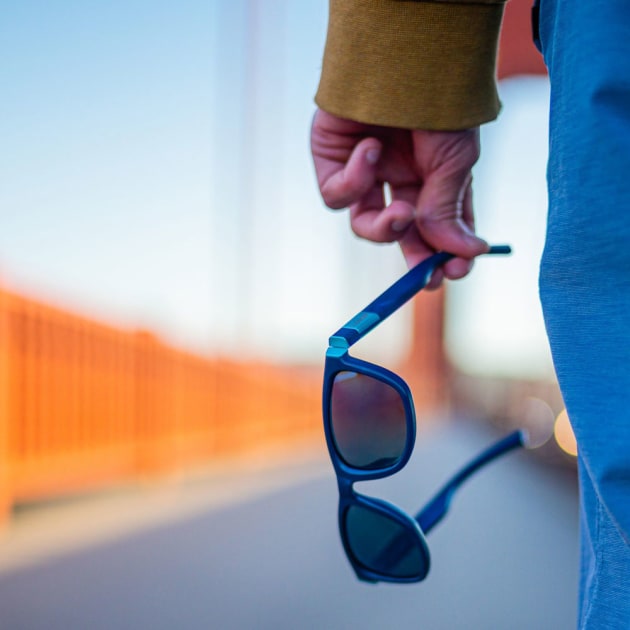Sunglasses made from plastic recycled from the Great Pacific Garbage Patch (GPGP) have become the first product to adopt a standard designed to clean up the oceans.
The standard is a result of a collaboration between certification body DNV GL and The Ocean Cleanup and provides a means for companies to demonstrate to their customers that their products are recycled from ocean plastic.
In this case, DNV GL certified that 95 per cent of the sunglasses’ frames developed by The Ocean Cleanup are made from plastic recycled from GPGP.
The standard aims to uphold the integrity of products by ensuring that the recycled plastics are not mixed with materials from other sources. Companies must also be able to demonstrate the sources of the plastic.

Depending on the location, DNV GL uses physical or remote audits to certify the products and work is ongoing to examine how blockchain can be used to ensure the immutability of the recorded data. The standard is publicly available to any company wishing to use a third party to demonstrate their products are made from plastic recycled from rivers, lakes, or oceans.
DNV GL-Business Assurance CEO Luca Crisciotti said: “Extracting plastic is only the first step in addressing a serious threat to our oceans and rivers. Turning trash into treasures is critical to fund further cleanup. With trillions of pieces of plastic in our oceans, a dramatic scaling of extraction is needed. Certification builds trust into the authenticity of the reclaimed plastic and new products made from it.”
One hundred per cent of the proceeds from the sale of the sunglasses will be used by The Ocean Cleanup to continue their mission to rid the oceans of plastic.
“We started work with The Ocean Cleanup almost two years ago to build a thorough understanding of the process and need before designing the standard,” Crisciotti said.
“For everything to come full circle and finally see the garbage turn into a pair of sunglasses made from certified reclaimed plastic is extremely rewarding.”





